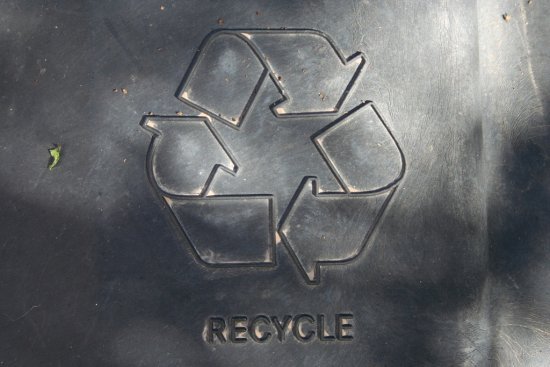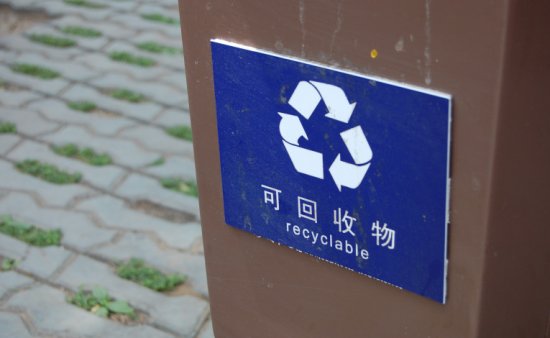The words "recycled" and "recyclable" often conjure up similar notions of relative greenness; the general idea is that, as long as you aren't pitching it directly in the trash, you're doing something good for the planet, right? Turns out, it isn't quite that simple. Here are some tips that help you get the most of the "R" words.

Image via cogdogblog at Flickr
Don't forget: it's three R's -- The aphorism is so tired it almost might seem like "reduce, reuse, recycle" should go without saying. But in fact, most of us have only really heard the last third of the phrase, and they're ranked in order of importance. Reducing the amount that we consume, and shifting our consumption to well-designed products and services, is the first step. Finding constructive uses for "waste" materials is next. And tossing it in the blue bin is last. (The garbage can is not on this list, for good reason.) Through a balance of these three principals you can easily see your landfill-destined waste dwindle fast. A good example of recycling is setting your empty water bottles in the bin on the curb. But by using a water filter and reusable container you can reduce or completely eliminate your need for disposable plastic bottles.
Know your numbers -- Read up on the recycling rules in your town and take care not to send in anything that can't be processed and recycled; one bad bottle can blow a whole batch! Each city has its own specifics, so try to follow those guidelines as best you can.

Image via Alexanderpf at Flickr
Buy recycled -- The essence of recycling is the cyclical movement of materials through the system, eliminating waste and the need to extract more virgin materials. Supporting recycling means feeding this loop by not only recycling, but also supporting recycled products. You can find high recycled content in everything from printer paper to office chairs to countertops.
Remember, "recyclable" is important, too -- In addition to buying recycled goods, keep a keen eye out for recyclable goods. Whenever you purchase something packaged, think about how you can reuse the packaging, return it to a shipping store for reuse, or try to otherwise recycle it. If you get something likely to run down or wear out over time, such as an electronic component, give preference to the model that can be easily upgraded or cannibalized for parts so that you don't have to junk the whole thing if one part breaks. Products that are impossibly fused together are often called "monstrous hybrids" and are, while often cheaper up front, frequently unfixable and unrecyclable.
Ultimately, while things like "recycled" and "recyclable" are better than continuing to direct tons of unrecoverable trash into the waste stream, the greenest way to go is to do a better job reusing what we have, and designing products that are durable and versatile enough that they don't require traditional recycling. 'Til then, we all gotta start somewhere...